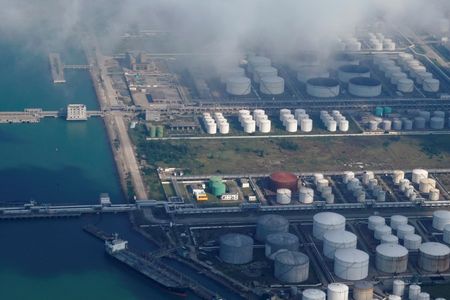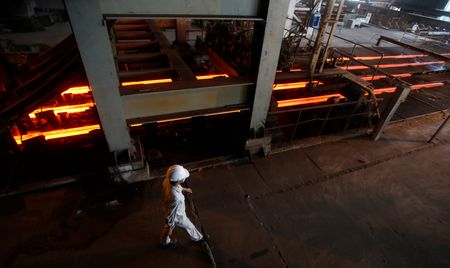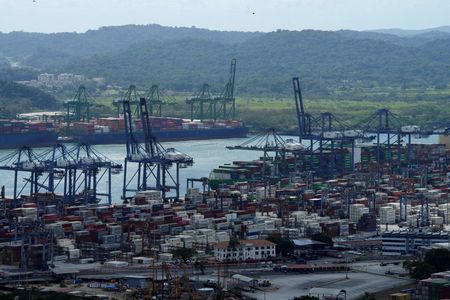By Sam Li and Lewis Jackson
NANTONG/BEIJING (Reuters) -A key segment of China’s petrochemical sector is set to expand by almost half between now and 2028 even as growing competition in the broader refining sector slashes profits.
Capacity to make ethylene, a key ingredient in plastics, will rise by 40 million metric tons between 2025 and 2028, taking total capacity to 100 million tons, Li Suoshan, an executive at a chemical logistics company owned by Sinopec, said on Thursday at a conference in China’s Jiangsu province.
Demand growth for traditional petrochemicals is set to slow over the next five years with margins weak in 2025 and profits likely to reduce further, he added.
Many refiners are piling into petrochemical products as China’s overbuilt refining sector faces a squeeze on profits from a weak economy and the rapid electrification of vehicles saps fuel demand, but they are also driving down petrochemical prices.
Losses across refining and petrochemicals increased by 8.3% in the first half compared to a year earlier, said Fu Xiangsheng, vice chairman of the China Petroleum and Chemical Industry Federation, at the same conference.
The sectors are both facing “involution,” a popular reference in China to brutal competition that destroys profits, he added.
China has stepped up its rhetoric against what it calls “disorderly low-price competition” and, in the case of polysilicon, a building block for solar panels, the sector has already proposed plans to cut capacity.
But how and what capacity to cut is a thorny question in China where local governments are often stakeholders in major projects.
Fu said it was not appropriate to use blanket rules related to size, utilisation or profitability to decide which refineries to shut and instead said decisions should be a combination of state policy and market forces.
Petrochemical prices should ultimately rise as China tackles “involution,” he said, although he did not provide a timeframe.
“Petrochemical industry associations are at the stage of conducting surveys and seeking feedback,” said Yang Lin, principal petrochemical analyst at Guosen Securities.
“Areas such as refining and ethylene may see some moves,” he added in reference to policies to address overcapacity.
(Reporting by Sam Li in Nantong and Lewis Jackson in Beijing; Editing by Jacqueline Wong and Kate Mayberry)











